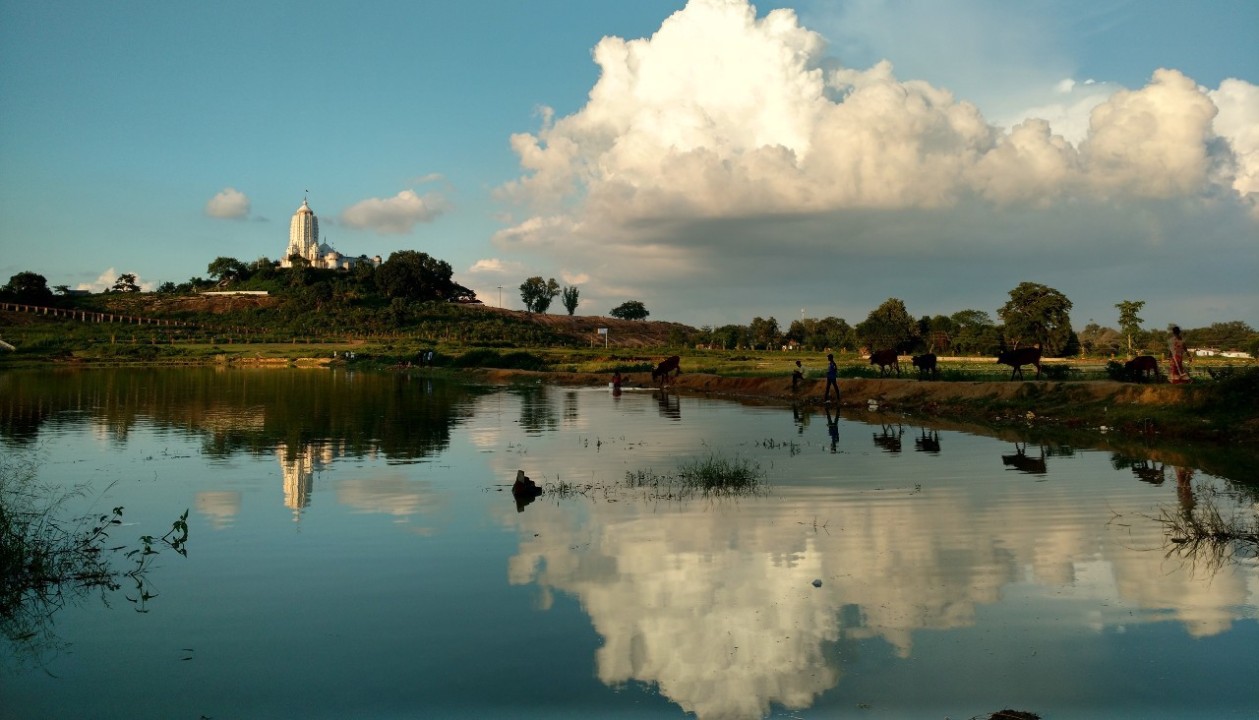Water, Trees, and Business Cards

Ensure availability and sustainable management of water and sanitation for all
These three disconnected words eventually will weave into one — hope. Hope for a world with majestic willows around brilliant blue lakes. And hope for a world with conscientious humans taking responsibility for a change.
History is testimony that civilizations have flourished and vanished around water bodies. Wars of the future, viz. the informally predicted World War III, will be over water rather than power. A forty percent shortfall in freshwater resources by 2030 coupled with a rising world population has the world careening towards a global water crisis. The threat is real and has compelled policymakers, industries, and various corporates to act towards the impending water crisis.
The world now understands that the availability and accessibility of clean water runs through all three pillars of sustainable development — with water resources impacting the environment, social and economic growth. Access to clean water checks off multiple development prospects like better health, poverty reduction, food security, saving ecosystems, affordable education, and most importantly — protection of peace and basic human rights. Unfortunately, this essential resource is still a luxury for over two billion people across the globe.
Saudi Arabia that ranks 8th for water stress has started a new program called “Qatrah” (“droplet”) that aims to reduce water usage by 43% within the next decade.
Furthermore, water availability is becoming more precarious day by day. Droughts, pollution, reckless extraction of groundwater, and extensive deforestation are all aggravating the pace at which we are losing usable and cheap freshwater. India, China, and the United States are losing their largest reservoirs of groundwater to the point of irreversible exhaustion. All of this is ultimately threatening sustainable development and biodiversity worldwide. SDG Goal 6 (Clean Water and Sanitation) laid down by the UNDP addresses our imminent global water crisis.
Rio, despite all the opposition, has successfully sold rights to its water and sewage treatment to two private companies whose goal by 2033 is the collection and treatment of 90% sewage water.
Traditionally, management of water resources has always focused on surface water and groundwater separately, but in actuality, the quantity and quality of one affects the other. Interestingly, a large part of the world’s drinking water comes from forested areas, either flowing from forests or buried beneath them. Healthy forests help regulate the quality and quantity of surface and groundwater. They play a crucial role in the water cycle and help prevent floods and droughts. Conversely, deforestation threatens both water ecosystems and land biodiversity. The core fact is that water availability directly impacts the health of forests and their inhabitants and vice versa. Hence, it’s fitting that the International Day of Forests (21st March) and World Water Day (22nd March) fall next to each other.
India that ranks 13th for water stress has also taken critical steps to mitigate water scarcity, including setting up the Jal Shakti Ministry to prioritize all water issues — including supply, drinking water and sanitation under central government umbrella.
The most effortless avenue to protect our planet from acute water crisis is ‘Planting Trees.’ Getting involved is accessible to everyone. Not only that but working toward this SDG can build both families and communities.
We can initiate regular family and community projects to plant saplings. Or/ and we can join a movement dedicated to impacting all 17 SDGs-“ FloCard.”
FloCard offers a transition from paper-based business cards to digital business cards in its most basic form, which inherently saves trees! In continuation to the commitment, FloCard has taken a profound yet straightforward initiative of strategically planting a tree with every FloCard created. So create your FloCard handle today at https://flocard.app and experience the satisfaction of contributing towards a thriving and healthy world!
PepsiCo, one of the biggest corporate entities has set several interconnected goals that aim to contribute to its positive water impact and setting the ambitious goal of 15% water reduction by 2025 is one of them.
